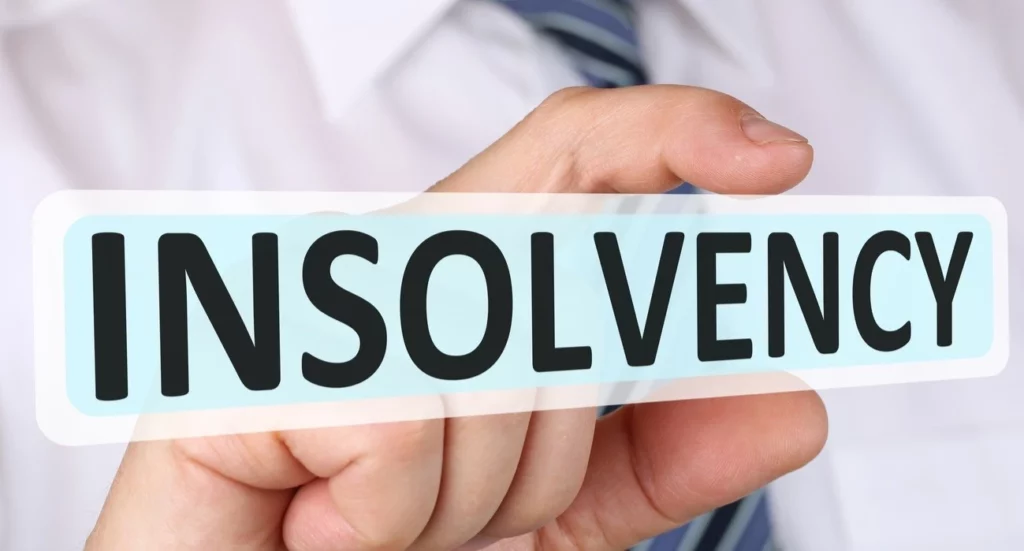In the world of insolvency law, negotiating with creditors is a critical skill that experienced lawyers possess. By understanding the basics of insolvency law and mastering the art of negotiation, these lawyers are able to navigate the complexities of insolvency cases and build strong relationships with creditors. Additionally, they are well-versed in the legal and ethical considerations that arise in such negotiations, and are prepared to overcome the challenges that come their way. In this article, we will explore the strategies employed by experienced insolvency lawyers when negotiating with creditors.
Understanding the Basics of Insolvency Law
Before delving into the strategies used by insolvency lawyers Sydney, it is important to have a good grasp of the fundamentals of insolvency law. Insolvency refers to the financial state of a person or entity when they are unable to pay their debts as they become due. Insolvency law encompasses the legal principles and procedures governing the resolution of such financial distress, with the ultimate goal of providing a fair and equitable distribution of the debtor’s assets among their creditors.
Insolvency lawyers specialize in this area of law and play a pivotal role in guiding debtors and creditors through the insolvency process. They are well-versed in the laws and regulations that govern insolvency cases, and use their expertise to provide sound legal advice and representation. These lawyers are keenly aware of their responsibilities and the impact their negotiations can have on their clients’ financial futures. Learn more about the role of insolvency lawyers In guiding financial recovery.

The Role of Insolvency Lawyers
Insolvency lawyers act as advocates for their clients, whether they are debtors or creditors. They have a deep understanding of the legal framework surrounding insolvency cases and use this knowledge to guide their clients through the complexities of the process. Their primary goal is to protect their clients’ interests while also promoting fairness and equitable outcomes.
Key Terms and Concepts in Insolvency Law
Before delving into the strategies employed by experienced insolvency lawyers, it is important to familiarize ourselves with some key terms and concepts in insolvency law:
- Debtor: The person or entity who owes money to creditors.
- Creditor: The entity to whom the debtor owes money.
- Bankruptcy: The legal process by which a debtor’s assets are liquidated to repay their debts.
- Insolvency: The financial state of a person or entity when they are unable to pay their debts as they become due.
- Liquidation: The process of converting a debtor’s assets into cash to distribute among their creditors.
Now that we have a better understanding of the key terms and concepts in insolvency law, let’s explore the intricacies of the insolvency process. When a debtor finds themselves in a state of insolvency, they may choose to file for bankruptcy, which is a legal process that allows them to discharge their debts and obtain a fresh start. However, bankruptcy is not the only option available to debtors.
Another alternative is debt restructuring, which involves negotiating with creditors to come up with a repayment plan that is manageable for the debtor. This approach allows the debtor to avoid the liquidation of their assets and maintain control over their financial affairs. Insolvency lawyers play a crucial role in these negotiations, using their expertise to advocate for their clients and ensure that any proposed repayment plan is fair and reasonable.
The Art of Negotiation in Insolvency Cases
Now that we have a solid foundation in insolvency law, we can turn our attention to the art of negotiation. Negotiation is a skill that can make or break an insolvency lawyer’s success in resolving cases. Skilled negotiators are able to find common ground and reach agreements that benefit both debtors and creditors.
When it comes to negotiation in insolvency cases, there are several essential skills that every lawyer must possess. These skills go beyond legal knowledge and require a combination of technical expertise and interpersonal finesse. Let’s take a closer look at some of the key negotiation skills that insolvency lawyers should have:
Active listening
Insolvency lawyers must listen attentively to both debtors and creditors in order to understand their concerns and interests. By actively listening, lawyers can gain valuable insights that can help them navigate the negotiation process effectively.
Effective communication
Clear and concise communication is essential in negotiating with creditors. Insolvency lawyers must be able to articulate their clients’ positions and proposals effectively. This includes not only verbal communication but also written communication, such as persuasive letters and well-crafted settlement offers.
Problem-solving
Insolvency negotiations often involve complex issues. Lawyers must have strong problem-solving skills to identify creative solutions that satisfy all parties involved. This may require thinking outside the box and exploring alternative options that can address the underlying concerns of both debtors and creditors.
Patience and perseverance
Negotiations can be lengthy and challenging. Insolvency lawyers must remain patient and persistent to achieve favorable outcomes for their clients. This may involve multiple rounds of negotiations and the ability to stay focused on the ultimate goal of reaching a mutually beneficial agreement.
Experienced insolvency lawyers employ various tactics and strategies to achieve positive outcomes in their negotiations. These tactics are designed to create an environment conducive to productive discussions and to facilitate the resolution of disputes. Let’s explore some common negotiation tactics and strategies that insolvency lawyers often utilize:
Establishing rapport
Building trust and establishing a professional relationship with creditors is crucial in negotiation. Lawyers who can cultivate a rapport with creditors are more likely to reach mutually beneficial agreements. This involves not only demonstrating expertise and credibility but also showing empathy and understanding towards the concerns of the other party.

Exploring alternatives
Insolvency lawyers should consider alternative options and propose creative solutions that may align with the interests of both debtors and creditors. By thinking outside the box, lawyers can find win-win solutions that might not be immediately apparent. This may involve suggesting alternative payment plans, restructuring options, or other innovative approaches that can address the needs of all parties involved.
Finding common ground
Identifying shared interests can help in resolving disputes. Lawyers should look for areas of agreement between debtors and creditors and use them as building blocks for negotiated settlements. By focusing on common goals and shared concerns, lawyers can bridge the gap between parties and facilitate productive discussions.
Demonstrating value
Insolvency lawyers should be able to clearly articulate the value of their clients’ proposals. By highlighting the benefits that creditors will receive, lawyers can help persuade them to support the proposed agreements. This may involve presenting financial projections, demonstrating the potential for increased recovery, or emphasizing the long-term benefits of a negotiated settlement.
By honing their negotiation skills and employing effective tactics, insolvency lawyers can navigate the complexities of insolvency cases and achieve favorable outcomes for their clients. The art of negotiation is a valuable tool in the arsenal of any skilled insolvency lawyer, allowing them to find common ground, build relationships, and ultimately resolve cases in a way that benefits all parties involved.
Building a Strong Relationship with Creditors
A key aspect of negotiating with creditors is building and maintaining strong relationships. Successful insolvency lawyers understand the importance of effective communication and trust-building measures.
Establishing a solid foundation with creditors goes beyond just the legal aspects of negotiation. It involves understanding the unique perspectives and motivations of each creditor, whether they are large financial institutions or individual investors. By taking the time to empathize with their concerns and priorities, insolvency lawyers can tailor their approach to better resonate with each creditor, ultimately leading to more successful outcomes.
Importance of Communication in Creditor Relations
Clear and open communication is vital in fostering positive relationships with creditors. Insolvency lawyers should keep creditors well-informed throughout the negotiation process, providing updates on the status of the case and addressing any questions or concerns they may have. Regular communication helps build trust and allows for effective collaboration.
Moreover, effective communication involves not only relaying information but also actively listening to creditors. By truly understanding their perspectives and concerns, insolvency lawyers can better navigate negotiations and find mutually beneficial solutions that address the interests of all parties involved.
Trust-Building Measures with Creditors
To foster trust, insolvency lawyers should operate with transparency and integrity. They should be upfront about both the strengths and weaknesses of their clients’ positions and proposals. By demonstrating honesty and a commitment to fair dealings, lawyers can earn the respect and trust of creditors, which is crucial for successful negotiations.
In addition to transparency, building trust with creditors also involves showcasing expertise and professionalism in handling complex financial matters. Insolvency lawyers who exhibit a deep understanding of insolvency laws and regulations, as well as a track record of successful negotiations, instill confidence in creditors that their interests are being represented competently and diligently.

Navigating Legal and Ethical Considerations
Insolvency lawyers must carefully navigate the legal and ethical considerations that arise in their negotiations with creditors. They have an obligation to comply with the law while also acting ethically to protect the interests of their clients.
Legal Obligations in Insolvency Cases
Insolvency lawyers must familiarize themselves with the legal obligations that govern insolvency cases. They must ensure compliance with applicable laws and regulations to avoid legal repercussions that could harm their clients’ positions.
Ethical Dilemmas in Insolvency Negotiations
Insolvency negotiations can present ethical dilemmas for lawyers. They must balance their duty to represent their clients’ interests with their obligation to act ethically. Lawyers should be mindful of conflicts of interest, ethical rules regarding client confidentiality, and the duty to act in a manner that promotes fairness and the best interests of all parties involved.
Overcoming Challenges in Insolvency Negotiations
While negotiation is a valuable tool in resolving insolvency cases, it is not without its challenges. Experienced insolvency lawyers are well-prepared to tackle these challenges head-on and find solutions that benefit their clients.
Dealing with Stubborn Creditors
One of the biggest challenges in insolvency negotiations is dealing with stubborn creditors. These creditors may be unwilling to compromise or may have unrealistic expectations. Skilled insolvency lawyers know how to navigate these difficult situations by employing patience, persistence, and effective negotiation strategies to find common ground.
Managing Complex Insolvency Cases
Insolvency cases can be incredibly complex, requiring lawyers to navigate intricate legal frameworks and financial intricacies. Experienced insolvency lawyers have the technical knowledge and expertise to manage these complexities effectively. They are able to break down complex issues, articulate them clearly to all parties involved, and work towards practical solutions.
In conclusion, negotiating with creditors is an essential skill of experienced insolvency lawyers. By understanding the basics of insolvency law, mastering the art of negotiation, building strong relationships with creditors, navigating legal and ethical considerations, and overcoming challenges, these lawyers are able to advocate for their clients and achieve successful outcomes in insolvency cases.

